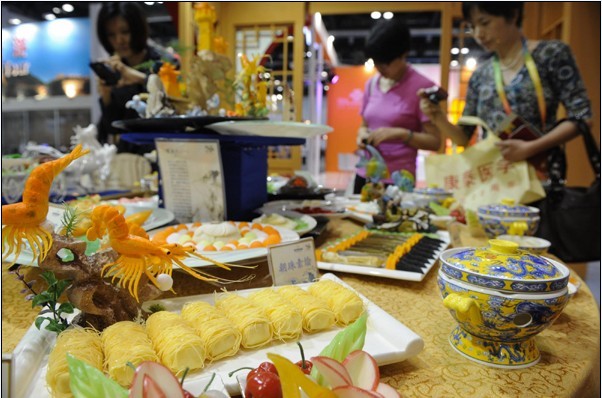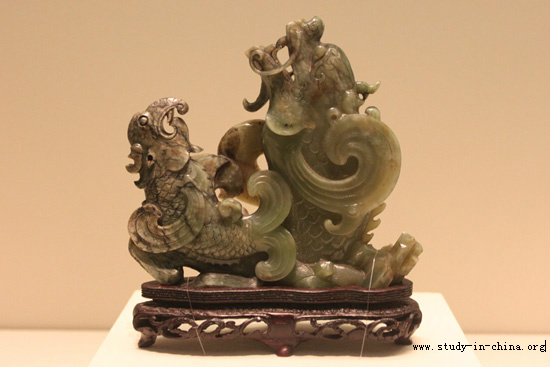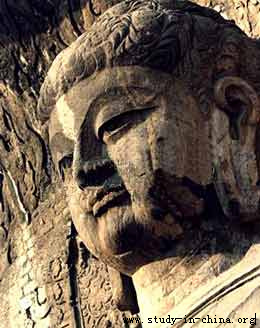| Home > China Feature |
The Communist Party of China
The Communist Party of China (CPC) is the vanguard of the Chinese working class and the faithful representative of the interests of the Chinese people of all ethnic groups. It is the core of the leadership over the socialist republic of China. It works towards the highest form of advanced productivity,advanced culture, and the basic interests of the Chinese people.
The CPC's goal is to realize the Communist social system. According to its party guideline, the CPC takes Marxism-Leninism, Mao Zedong Thought and Deng Xiaoping Theory as guidance for governing.
Founded in July 1921, the CPC helped establish the People's Republic of China (PRC) in 1949 through years of armed struggle. During these years, the CPC led the Chinese people in their arduous struggles that finally led to the overthrow of the rule of imperialism, feudalism and bureaucrat-capitalism and the establishment of the PRC. After the founding of the PRC, the CPC led Chinese people of all ethnic groups in defending the independence and security of the country, successfully completing the transition from new democracy to socialism. The new government carried out systematic large-scale socialist construction and achieved economic and cultural progress unparalleled in Chinese history.
After the basic accomplishment of the socialist transformation in 1956, the CPC made some mistakes in leading socialist construction. This was due mainly to lack of experience. Later, the CPC made the serious, nationwide mistake of launching the "cultural revolution" from 1966 to 1976, the harmful repercussions of which lasted for years.
The "cultural revolution" ended in October 1976, at which point China entered a new historic era of development. After the Third Plenary Session of the Eleventh Party Central Committee at the end of 1978, the country embarked on the largest change in the history of New China. From 1979, the CPC began to carry out the reform and opening-up policy initiated by Deng Xiaoping. In more than two decades since the initiation of these reforms, China's economic and social development has been crowned with remarkable success and the country has taken on a new look. This has been the best and most prosperous period since the founding of the PRC, and the period when the people have reaped the most material and economic benefits.
The CPC practices an active policy of developing diplomatic relations with other countries and creating the best environment for China's opening-up and modernization process. In foreign affairs, the CPC firmly pursues the policy of independence and peaceful co-existence. It devotes itself to safeguarding the independence and sovereignty of China, opposing absolute power, protecting the world peace and promoting the progress of all humankind. The CPC is developing relations with countries around the world based on the Five Principles of Peaceful Coexistence. These are: the mutual respect for territorial integrity and sovereignty, mutual non-aggression, non-interference in each other's internal affairs, equality and mutual benefit, and peaceful coexistence. The CPC is also establishing a friendly relationship with other countries' political parties based on the Four Principles of independence, equality, mutual respect, and non-interference into each other's internal affairs. At present, the CPC has established links with more than 300 parties in over 120 countries.
The CPC is a party organized by democratic centralism. According to its principles and rules, Chinese workers, farmers, soldiers, intellectuals and other revolutionaries may apply for membership in the CPC, provided they have reached 18 years of age. They must also accept the Party Program and Party Constitution, participate in one Party organization, carry out Party resolutions and pay regular Party dues.
The central organs of the CPC include the CPC's National Congress, its Central Committee, the Central Political Bureau, the Political Bureau's Standing Committee, the Central Secretariat, the Central Military Commission and the Central Commission for Discipline Inspection. The CPC's National Congress is held once every five years. When the national congress is not in session, the Central Committee is the highest leading organ of the CPC. Now there are about 70 million CPC party members. Hu Jintao is the current General Secretary of the Party Central Committee.
Art
 more
moreChina Beijing International Diet ...
Recently, The hit CCTV documentary, A Bite of China, shown at 10:40 ...

Exhibition of Ancient Chinese Jad...
At least 8,000 years ago, Chinese ancestors discovered a beautiful...

Longmen Grottoes
The Longmen Grottoes, located near Luoyang, Henan Province, are a tr...

Custom
 more
moreWeb Dictionary
Martial Arts
Tai Chi Master Class Held in Moscow
MOSCOW, June 15, 2016 (Xinhua) -- Students learn from Shaolin ...
Celebriting 70 years' efforts in restoring Mogao...
Work is being carried out at the restoration site of cave No 98 a...
Hong Kong Children's Symphony performs in Seattle
Under the theme of Tribute to the Golden Age, a concert featuring a ...





 print
print  email
email  Favorite
Favorite  Transtlate
Transtlate 








